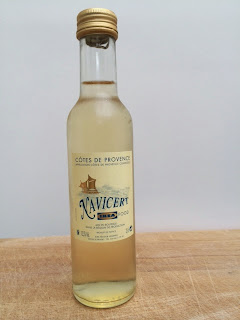No, this is the time of year when you feel that you can sweep into a wine merchant that sounds like a chartered surveyors, a wine merchant posh enough to have an ampersand in its name. A chap in a striped shirt will say “Can I help you, sir?”, in that manner which suggests “Can I help you to find the other place you are clearly supposed to be?”
But this time, you can reply “I hope so – I’m looking for a bottle of Pol Roger…” And he will smile knowingly, and you will feel that you have earned your right to be there.
So of course, my Christmas Day will begin with Pol Roger White Foil Brut, because it was Churchill’s favourite champagne and, like him, “My tastes are simple. I am easily satisfied with the best.” Churchill supposedly had 42,000 bottles opened over his lifetime, but for my Christmas Day a few less may suffice. If someone objects to CJ’s budget Cava, he’s got no-one to blame but himself, but if anyone disapproves of my choice, I can always lay the blame on Winston. And while I’m trying to conquer the cooking, I can come out with his quote about champagne: “In victory I deserve it, in defeat I need it”.
(Of course, you don’t have to get your Pol Roger from a posh wine merchant. You can get it from Majestic. But the chap serving you might be wearing a polyester fleece…)
Let’s not get carried away with this “traditional” business. I mean, I don’t spend Christmas prancing around in a periwig. But on the other hand, a screwcap New World red is simply not on. A screwcap wine is about as traditional as a vacuum-packed turkey.
And again, Christmas is a rare opportunity to stroll into a proper wine merchant’s, and boldly ask for a bottle of claret. Not a bottle of Bordeaux; use a proper, Olde English term for a proper Olde English occasion. I shall leave it to your better judgment as to whether or not you add “my good man”.
A wine merchant might not know what you mean if you wander in forsoothing and gadzooksing, but he’ll know what you mean by claret alright. He’ll know you’re someone who appreciates tradition. And so will your guests – which matters, because if you don’t appreciate tradition, why are you having a traditional Christmas dinner?
You’ll want a wine you can decant for the Christmas table, because I find it’s one of the rare meals for which you can put out a decanter and no-one will accuse you of being pretentious. So you also need a wine which will benefit from a bit of breathing space; unlike CJ’s rubbish, whose flavour uses the excuse of meeting the open air to disappear faster than Santa’s reindeer. You’re looking for a wine with a bit of clout. Of course this is the time for something like my treasured remaining Leoville Barton 1989, but if you’re looking at under £20, something like a Larose-Trintaudon 2007 will retain a sense of sophistication, while stunning the range of flavours in a Christmas dinner into submission.
CJ asks why on earth you would need a bottle of white for Christmas dinner. The simple fact is that while he is still wrangling with his recalcitrant oven, civilised folk are having a civilised starter, like smoked salmon for example, which cries out for a nice bottle of white. I’m not as precious about the New World when it comes to whites, and something like First Press Napa Chardonnay from Waitrose is half the price of its Burgundy equivalent, but has the richness and complexity to go with both the starter and the pud. And it will go with the cold cuts on Boxing Day if there’s any left. If…
In the interests of symmetry with his own post, I am not permitted to stray into the contentious territory of vintage port. CJ seems to object to it because, and I quote, “It is not 1908.” Well, it might as well be at my abode, given the dinner table decorum and the talk of Winston Churchill, so we’ll be finishing off properly with port. As I’ve said, this is the one day when it’s all about tradition; so woe betide anyone who passes it the wrong way.
Haven’t you spent enough on presents already? bleats CJ. Well, probably not for yourself. What better way of demonstrating the generosity and largesse of Christmas, while simultaneously treating yourself, than indulging in some splendid wines? Go on, go for it – and have a great Christmas.
PK















